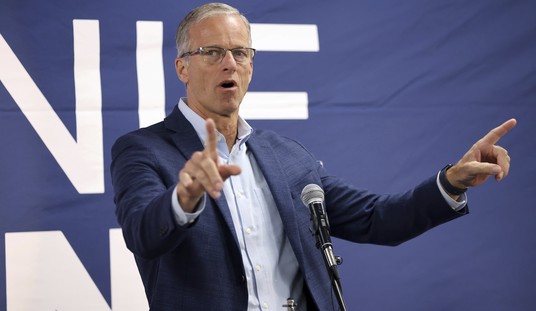By Robert Holland
Personalized learning (PL) is the latest rage in the education world. It is hard to find an education journal or a newspaper opinion section that hasn’t featured PL lately as a supposedly game-changing innovation lacking any drawbacks whatsoever.
Long-time observers know there is always enthusiasm within professional education for a heavily marketed program or concept promising to revolutionize how children learn—while making gurus filthy rich.
Usually, these brainstorms bubble up from the progressive school of thought associated with philosopher John Dewey. Eventually, most fall into a thickly populated dustbin of failed fads. Think “inventive spelling” or “whole language.”
Surely personalized learning won’t join such toxic discards. How could PL be anything but wholly positive? After all, it is simply about a master teacher bringing out the best in each of her students, yes?
No. Stripped of all the hype, PL is basically about a student’s teacher being a machine: a computer. The grand idea is that by tapping into the internet, a student will gain the power to control the path his or her learning takes and the pace at which it occurs. Teacher becomes a mere facilitator, a downgrade long advocated by progressive theorists. Constructivism—the notion of students constructing their own knowledge—also dovetails with PL.
Control of path and pace by student on a computer runs counter to certain tenets of cognitive science, as the founder and executive director of Deans for Impact, an initiative dedicated to improving teacher preparation, noted in a spring 2015 Education Next article.
“Put simply, knowledge is cumulative,” wrote Benjamin Riley. “What a child is capable of learning depends on what she already knows. When a child encounters new information, if she lacks the preexisting knowledge to put the information in context, she will quickly become frustrated. She won’t learn.”
Students are unlikely to find the path to wisdom if left to their own devices—in this case, a computer. That is why we have teachers: to guide students down a path to acquire useful knowledge.
As for pace, Riley points out, “[T]hinking is hard and often not fun, at least at first.” It is naïve to suppose students will use their digital gadgets to engage in difficult activities when so many fun options are available. And if kids fall behind their faster-moving peers in the early years, frustration—particularly for those who are at-risk—could sour children on school altogether.
In short, Riley ruffled many PL-progressivist feathers by making the common-sense case in favor of teacher-directed instruction, complete with the as-needed pushing of children to learn. Unfortunately, a feature of PL more ominous than flabby child-centered pedagogy is the potential for the computerized programs to gather psychosocial data about children that could follow them through school and career.
Both the U.S. Department of Education and the vast ed-tech industry are hot to use the new federal law the Every Student Succeeds Act (ESSA) as a springboard for making so-called “social-emotional learning” (SEL) a key to personalizing education. ESSA authorizes states in their federally mandated assessments to gather non-academic information about students’ emotional states, empathy for others, relationships, how they set goals and make decisions, and other attitudinal factors.
The Bill and Melinda Gates Foundation, the financial angel behind the floundering Common Core State Standards, is now spending millions of dollars in support of SEL-infused personalized learning via what is called the Next Generation Learning Challenges.
A pair of Gates’ Next Generation honchos declared on a Gates Foundation blog called Impatient Optimists that “the central idea [of personalized learning] is that the system should be designed not for uniformity, but instead to meet every student’s individual needs.” Irony fairly seeps from that pious declaration of intent, given the Gates Foundation’s bankrolling of the ultimate in one-size-fits-all education: Common Core.
Computerized profiles of students’ mindsets and dispositions compiled during years of digital learning potentially could follow them throughout school, college, and careers. Boosters of so-called personalization may believe such data will help students learn more deeply, but erroneous information could inflict long-lingering harm. Furthermore, just as a matter of basic decency, privacy laws should ensure individuals in a free society the right to be free from pervasive government snooping, even that done in the holy name of education.
Obviously, technology can be a powerful tool for expanding educational horizons, as Benjamin Riley noted in a recent EdSurge article that proposed teachers be central in guiding its use. However, not enough is known about the cognitive effect of pervasive computerized instruction to accept uncritically the slick sales pitches for personalized learning, which in many ways actually de-personalizes education.
Robert Holland ([email protected]) is a senior fellow for education policy with The Heartland Institute.













Join the conversation as a VIP Member